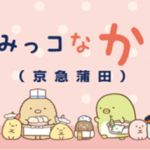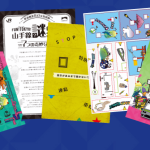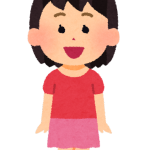The Meaning of Learning Insults in Taiwanese
In Taiwan, besides Mandarin (國語), there is also Taiwanese, the language originally spoken in Taiwan.
This Taiwanese language is derived from Minnan (閩南語), spoken in the southern region of China’s Fujian Province, and has developed uniquely over time.
Although both Mandarin (國語) and Taiwanese are spoken in Taiwan, they differ completely in vocabulary and pronunciation, making mutual understanding impossible (this is different from the concept of dialects in other countries).
Taiwanese contains many words for insults.
Taiwanese holds a wealth of cultural essence from Taiwan, making it very important for gaining knowledge.
Even if you don’t plan on using it, knowing Taiwanese as a part of cultural literacy can deepen your interactions with Taiwanese people.

姦 (kàn) – Risk Level: ★★★★☆
In Taiwanese, this is one of the most popular insults.
Its original meaning is close to the English word “fxxk,” making it a very offensive term when used to insult someone. However, among friends, it’s often used more casually, similar to saying “damn” or “shoot” in English to express frustration.
The character “姦” can also be written as “幹,” “淦,” “贛,” or “干.”
In Mandarin Chinese, this word is equivalent to “操” (cao4).
In any case, it’s best not to use it too much.

姦恁娘 (kàn-lín-niâ) -Risk Level: ★★★★★
The meaning is “I will [do something harmful to] your mother.”
Although it uses the character “娘,” in Taiwanese (and Mandarin), it refers to “mother.”
“姦恁老母 (kàn lín lāu-bú)” has the same meaning.
The character “老母” (lāu-bú) also means “mother.”
Additionally, a simplified version, “恁娘 (lín-niâ),” is often used as well.
In Mandarin, this is similar to “操你妈 (cào nǐ mā).”
In English, it is close to “Mother F××ker.”
哭 (khàu) -Risk Level: ★★☆☆☆
This term is commonly heard as an insult in Taiwanese.
In addition to “哭,” the character “靠” is also often used.
The meaning comes from the image of a child crying out in hunger, similar to “哭枵 (khàu-iau),” which has the same connotation.
In English, it roughly translates to something like “oh no” or “oops.”
哭枵 (khàu-iau) – Risk Level: ★★☆☆☆
The term “哭 (khàu)” has the same origin as “哭枵 (khàu-iau).” It originally described how a child cries loudly when hungry, and over time, it has evolved to mean “noisy” or “shut up.”
You might also often see the term “靠腰.”
“哭殀 (khàu-iau)” has the same pronunciation, but its meaning comes from the sadness of a child dying young. However, this meaning has largely faded, and it now resembles the expression “oh no!!” in English.
Because “哭枵 (khàu-iau)” sounds the same, it’s more common to see “靠腰” used as a phonetic substitution without any specific meaning.
哭爸 (khàu-pē) – Risk Level: ★★☆☆☆
It seems to have evolved from expressing sadness over the death of a father to being used as an insult.
In this context, it can convey meanings similar to “oh no,” as well as “noisy” or “the worst.”
白目 (pe̍h-ba̍k) – Pronunciation: – Risk Level: ★☆☆☆☆
In English, it might be close to the expression “to cringe” or “to roll your eyes.”
In Mandarin Chinese, it is expressed as “白目 (bái mù)” in the same way.
白痴 (pe̍h-tshi) – Pronunciation: – Risk Level: ★★☆☆☆
It is indeed a straightforward term, and it is commonly used in Taiwan.
It conveys the sentiment of “Are you stupid?” or “Are you an idiot?”
ā dā mǎ kǒng gù lì (頭コンクリート) – Risk Level: ★★☆☆☆
This insult comes from Japanese.
It means “a person with a stubborn head” or “a person who is inflexible.”
While it is not commonly used in modern Japanese, this term remains in Taiwanese, providing a valuable connection to the period of Japanese rule.
Interestingly, besides “アタマコンクリ(ā dā mǎ kǒng gù lì ),” the phrase “バカヤロ” (baka-yaro = you idiot) is also understood in Taiwan.
Taiwanese pronunciation
Taiwanese has eight tones, and mastering these tones is incredibly difficult.
Moreover, each tone can change depending on its position, making it much more complex than Mandarin Chinese (國語)…
However, when it comes to understanding Taiwan, you can’t avoid Taiwanese.
I believe that knowing Taiwanese is essential to truly grasp the essence of Taiwan.



